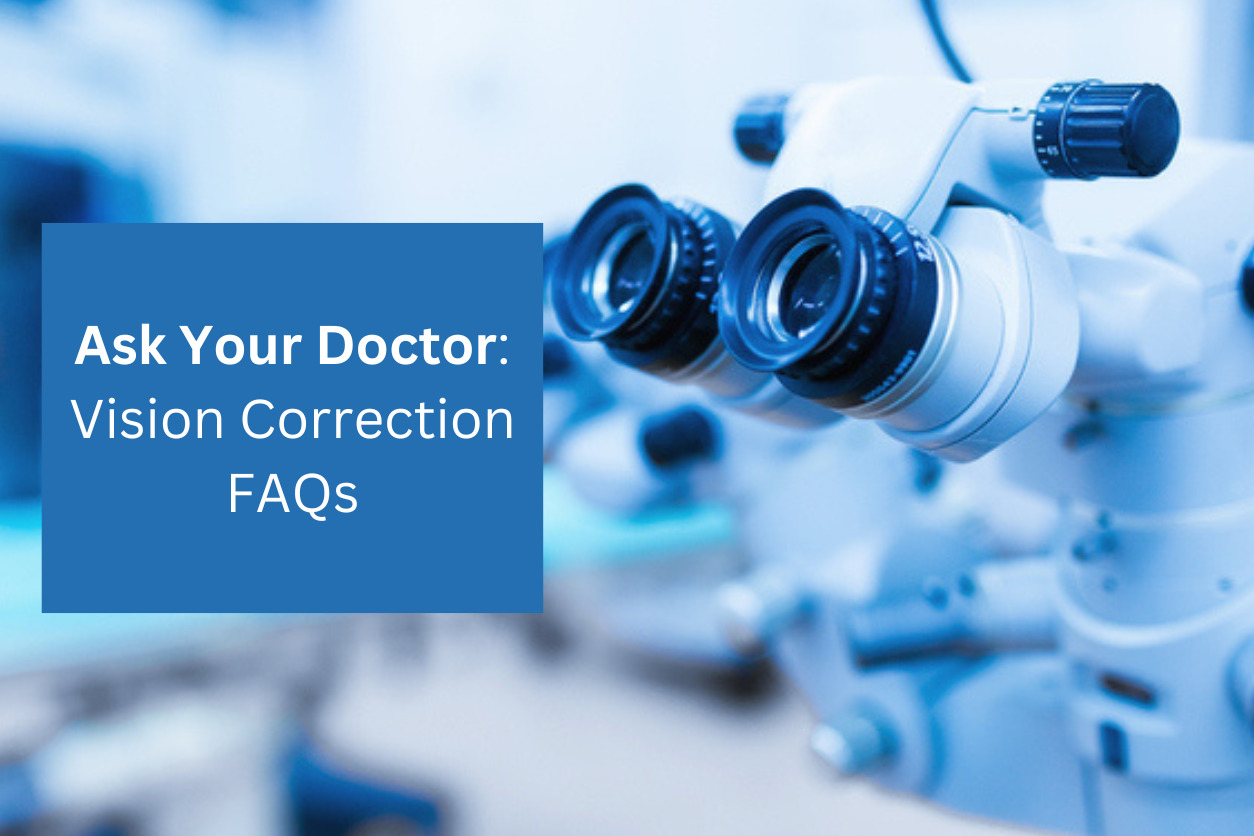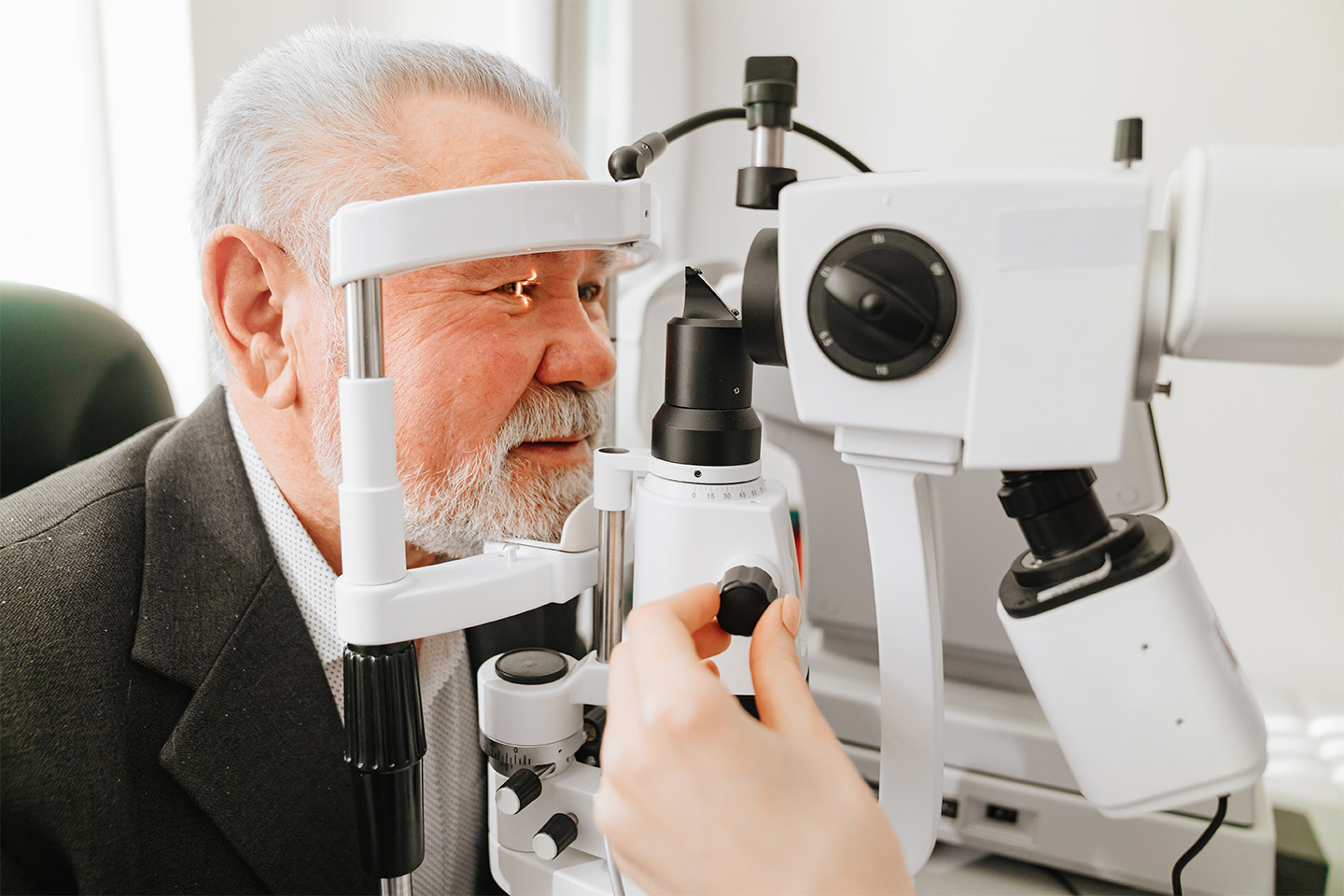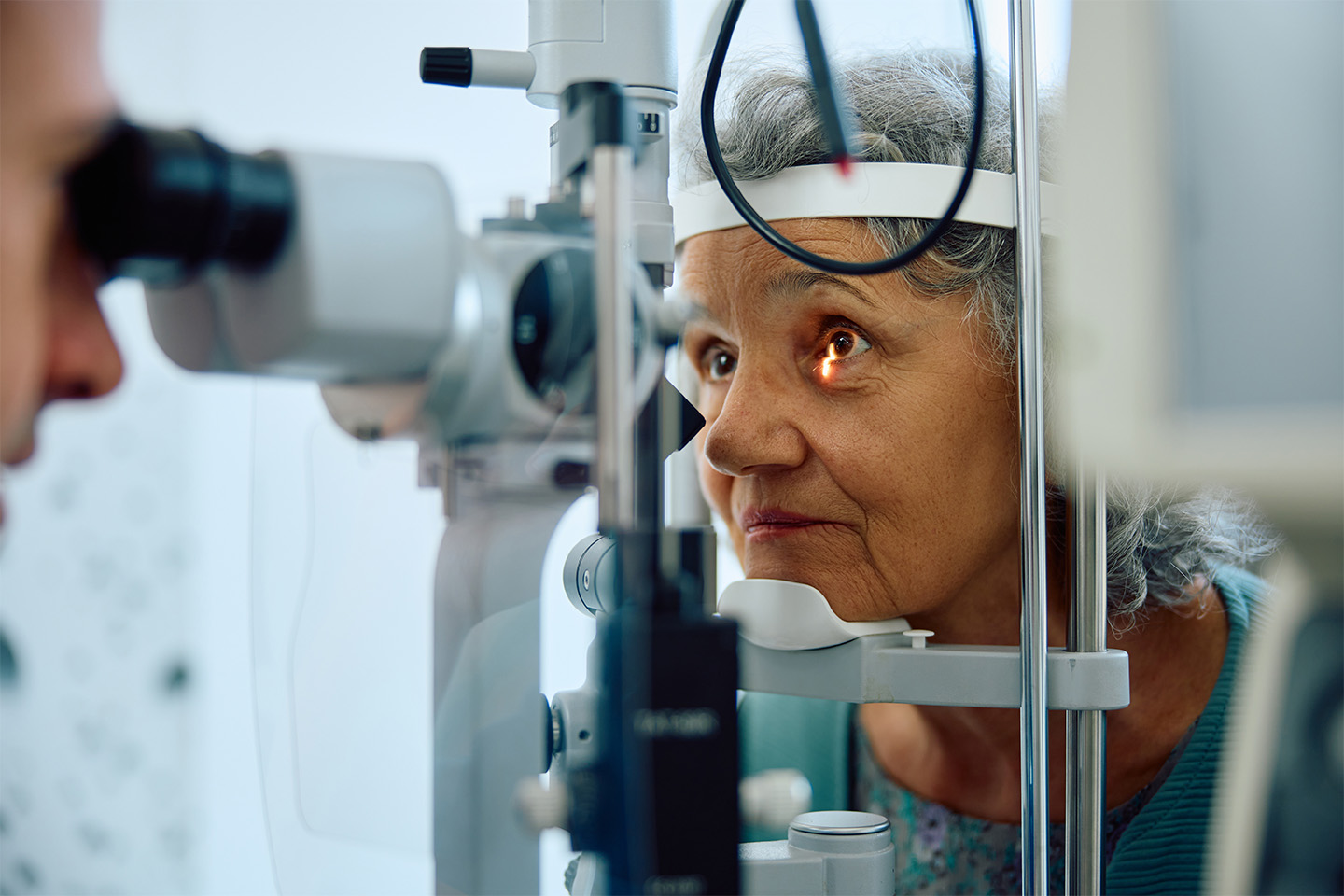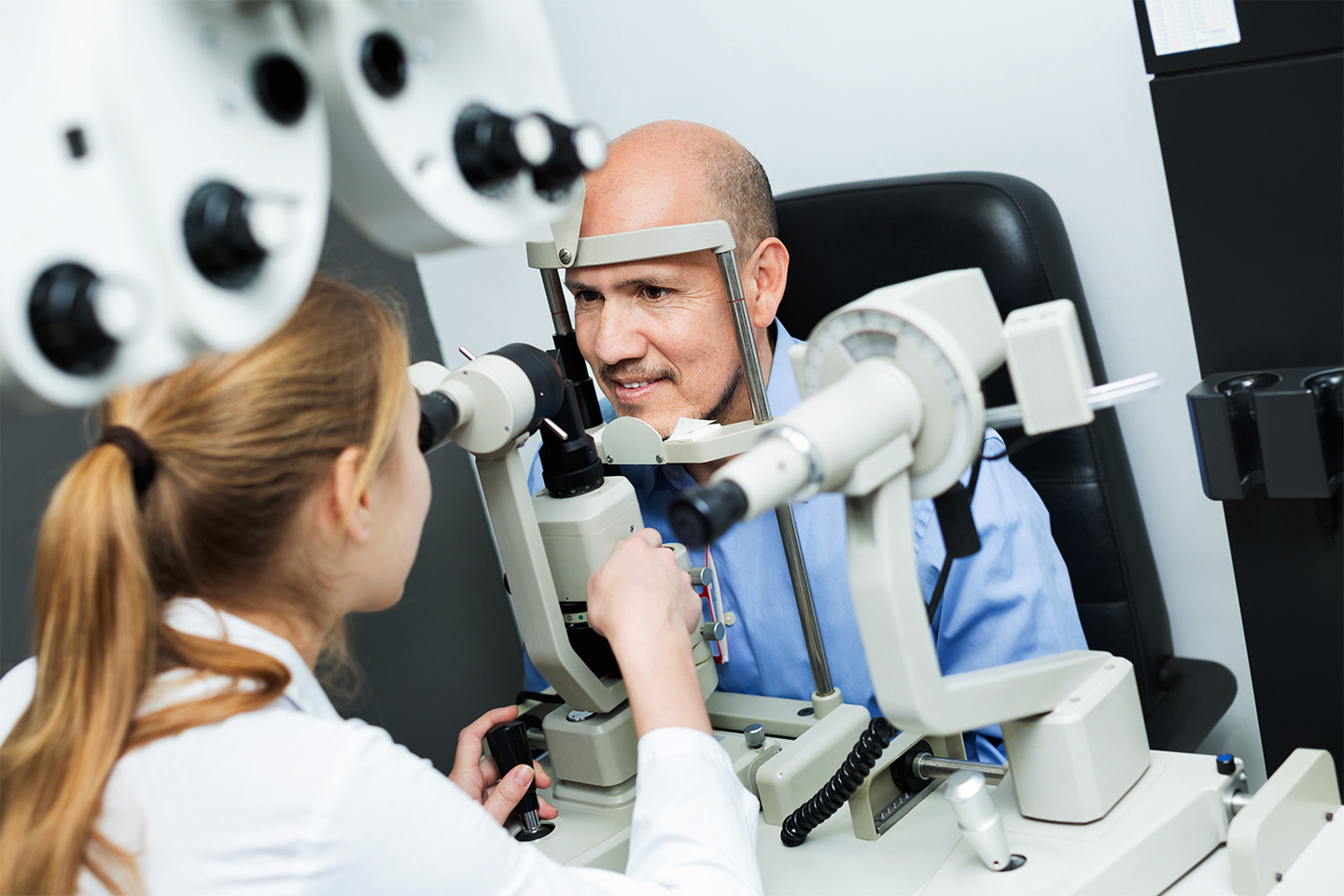Ask Your Doctor: Cataract FAQs

Before any procedure, you’ll likely have lots of questions about what to expect, recovery, post-op and more. Get answers to some of the most frequently asked questions about vision correction surgery with Swagel Wootton Eye Institute’s top surgeons to help you understand more about Cataract eye surgery.
Cataract FAQs
What is Cataract Surgery?
Cataract surgery is a procedure to remove the lens of your eye and, in most cases, replace it with an artificial lens. Normally, the lens of your eye is clear. A cataract causes the lens to become cloudy, which eventually affects your vision.
Cataract surgery is performed by an eye doctor (ophthalmologist) on an outpatient basis, which means you don’t have to stay in the hospital after the surgery. Cataract surgery is very common and is generally a safe procedure.
Does Medicare Cover Cataract Surgery?
Yes, Medicare covers standard cataract surgery. There may be options to upgrade to premium implants or use laser guided surgery to help correct astigmatism which are not covered by medicare.
What Are Cataracts?
A cataract is a clouding of the normally clear lens of the eye. For people who have cataracts, seeing through cloudy lenses is a bit like looking through a frosty or fogged-up window. Clouded vision caused by cataracts can make it more difficult to read, drive a car (especially at night) or see the expression on a friend’s face. Most cataracts develop slowly and don’t disturb your eyesight early on. But with time, cataracts will eventually interfere with your vision. At first, stronger lighting and eyeglasses can help you deal with cataracts. But if impaired vision interferes with your usual activities, you might need cataract surgery. Fortunately, cataract surgery is generally a safe, effective procedure.
What Causes Cataracts?
Most cataracts are age related and occur gradually. Other types of cataracts can be caused by trauma, medications, or even be present congenitally (at birth). Retina surgeries often result in rapid development of cataracts.
How Long Does Cataract Surgery Take?
Most cataract surgeries can be performed in less than 20 minutes.
How Long Does It Take to Recover from Cataract Surgery?
Most patients recover from cataract surgery fairly quickly. The eyes can feel sore and be red the first few days after surgery. There are physical limitations in place for the first few weeks, such as no vigorous exercise, heavy lifting, or swimming. Patients can expect stable vision at the one month mark, or sooner.
How Long After Cataract Surgery Can You Drive?
That’s different for everyone. Your eye care provider will let you know when it is safe to begin driving again.
How Much Does Cataract Surgery Cost?
The cost of cataract surgery varies depending on the options the patient elects. Most insurance and medicare covers the cost of standard cataract surgery, but won’t cover additional “premium upgrades”.
What is the First Sign of Cataracts?
Most people have difficulty with night vision before anything else. Another common sign is needing more light to read.
Can Cataracts Come Back?
No, cataracts can not return. Sometimes the bag (or capsule) that holds your new implant can become hazy and require a follow up procedure with a laser to clear it. This happens in about 25-30% of all cataract surgeries.
Is Cataract Surgery Painful?
No, cataract surgery is not painful. The majority of cataract procedures are done under twilight sedation and patients are very comfortable.
What Do You See During Cataract Surgery?
Patients are sedated during surgery and usually have no recollection of the procedure once it’s finished.
Are Cataracts Hereditary?
Everyone gets cataracts eventually, but there may be a hereditary component to early onset cataracts
How Long Does Cataract Surgery Last?
Cataract surgery is permanent and will last the rest of the patient’s life.
Does Cataract Surgery Correct Vision?
In many cases cataract surgery can improve vision, correct refractive error, and sometimes eliminate the need for glasses and contact lenses completely. There are many types of lens implants available. Not every patient is a candidate for vision correcting cataract surgery
Can Cataracts Be Reversed?
No, cataracts are progressive and can not be reversed.
What Are the Risks of Cataract Surgery?
The most common risks of cataract surgery are infection and inflammation following the procedure. This is largely managed with topical eye drops for several weeks following the surgery. Other, more rare complications include increase in ocular pressure, swelling of the macula, retained lens fragments in the capsule, and retinal detachment among others. Your surgeon will go over all the risks at the time of the cataract evaluation based specifically on your unique case. About 3.6 million people have cataract surgery every year in the US, and over 90% of those cases have their vision restored.
What Are the Most Common Problems After Cataract Surgery?
Common problems directly after cataract surgery are blurry vision, scratchy dry feeling, broken blood vessels in the white of the eye. Blurry vision is resolved by adjusting the glasses prescription after a few weeks, and eye irritation resolves over time.
What Are the Three Types of Cataract Surgery?
There are three major cataract surgery procedures:
1. Phacoemulsification.
2. Femtosecond laser-assisted cataract surgery (FLACS).
3. Extracapsular cataract extraction (ECCE).
The first two types of cataract surgery are those found in a modern setting: phacoemulsification and femtosecond laser-assisted cataract surgery (FLACS).
Phacoemulsification is by far the most common type performed in the developed world, with some minor adoption of FLACS.
There is also a third option of extracapsular cataract extraction which is valuable in some cases of mature cataracts as well as difficult procedures in which phacoemulsification is riskier or not possible.
Extracapsular cataract extraction is performed much less frequently in the developed world but is commonly carried out in developing countries. To know which option is right for you, we’ll need to consider the kind of cataracts you have and the health of your eye









